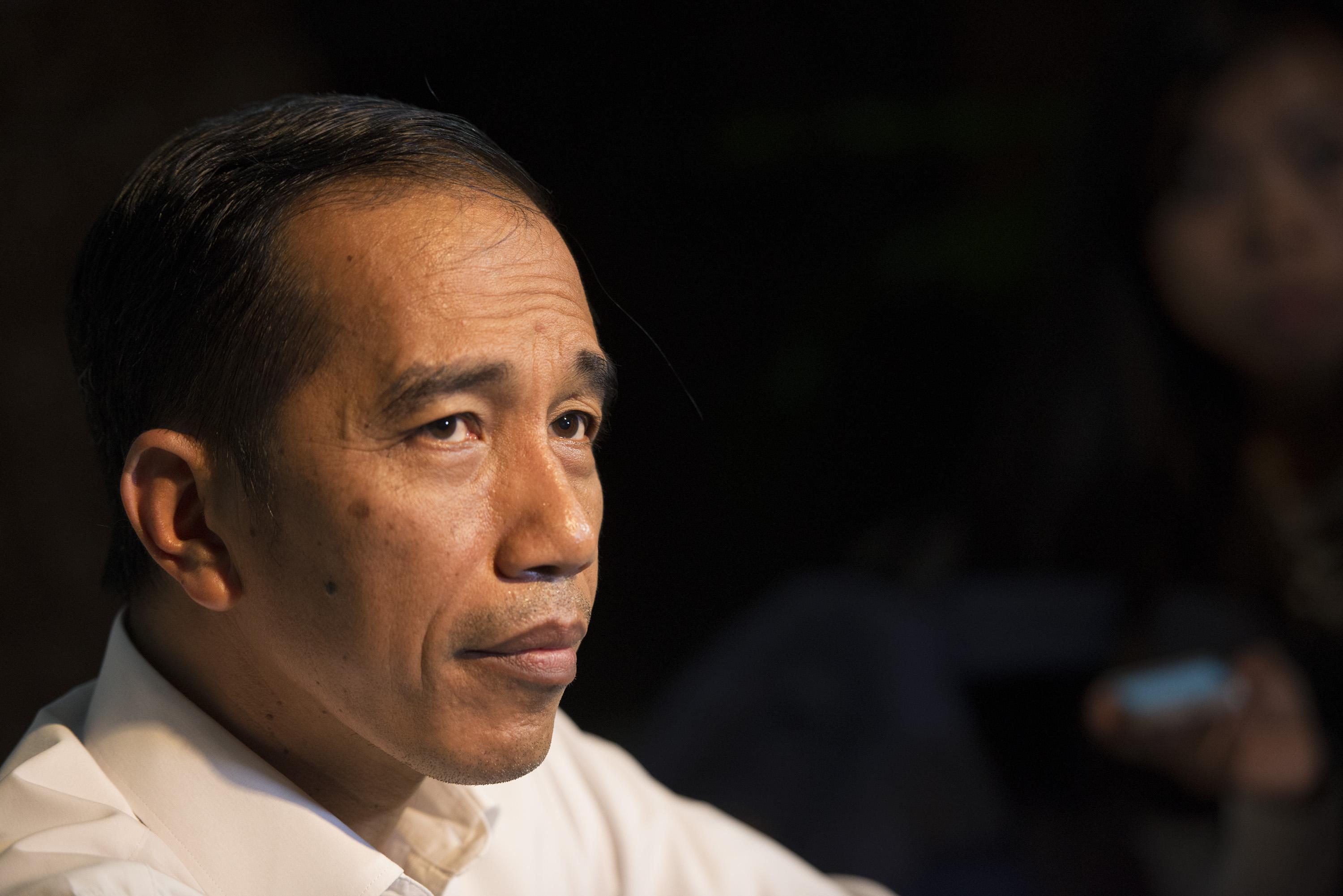Indonesia's New Leader, Facing Growth Hurdles, May Focus on Cutting Red-Tape
Bareksa • 07 Oct 2014

Gubernur DKI Jakarta yang juga Presiden terpilih Joko Widodo menyimak sejumlah pertanyaan wartawan di Rumah Dinas Gubernur DKI Jakarta di Jalan Taman Suropati Nomor 7, Menteng, Jakarta (ANTARA FOTO/Widodo S. Jusuf)
The new leader also cannot use the budget to stimulate the economy.
Bareksa.com - Soon after he became governor of Indonesia's traffic-clogged capital in 2012, Joko Widodo came up with a creative approach to an impasse blocking completion of a ring-road around Jakarta for almost a decade.
Some 140 stubborn residents had refused to sell their land to allow construction of the last 1.5-kilometre stretch of road. Instead of taking them to court, Widodo took them for a meal. He prayed with them at a local mosque. After four visits, they all agreed to sell. Jakarta no longer has a frustrating gap in its ring-road.
When Widodo becomes president on Oct. 20, he obviously cannot use similar ways to solve the many problems faced by Indonesia, a sprawling archipelago of around 13,500 islands.
In addition to time, the new president will lack elements critical for making major changes. He doesn't have a majority in the new parliament, whose speaker and deputies aren't from his party.
Indonesia's current big budget deficit doesn't let Widodo pump-prime Southeast Asia's largest economy, which in the second quarter grew at the slowest pace in nearly five years.
Given this weak starting-point, analysts expect the new president to push for some badly needed "supply-side" improvements such as bureaucratic and governance reforms plus efforts to resolve land issues obstructing development.
PERSONAL EXPERIENCE
To try to improve the investment climate, Widodo hopes to cut through the red tape that stifles growth. He had personal experience with strangling bureaucracy when he was a furniture exporter - which Indonesian Chamber of Commerce and Industry chairman Suryo Sulisto says makes Widodo especially "sensitive" to the frustrations that business faces.
In late September, Widodo told the Indonesian Employers Association that he would make things simpler for business, starting by giving responsibility for issuing permits to a single agency, the Investment Coordinating Board (BKPM).
"We're going to work on a one-stop service," Widodo said. "Investors would come to one place to apply for licenses. They won't have to move from one ministry to another."
Simply cutting red tape will not rid Indonesia of its reputation as one of the toughest places in Southeast Asia to do business. Investors complain of protectionism, corruption, poor infrastructure and inflexible labour laws.
Still, "it would just take a few meaningful reforms from Jokowi to get people interested again" in Indonesia, said Dan Martin of Capital Economics, referring to the president-elect by his nickname.
JAKARTA'S LIMITED POWERS
Widodo has pledged to work with parliament to revise conflicting regulations, and called on provincial governors to help resolve land disputes - as he did to seek completion of Jakarta's ring-road - so other stalled projects can proceed.
Indonesia's highly decentralised system of government means that Jakarta has only limited powers to shape local regulations. But the central government will try to spur competition among local agencies to offer investors the best service, Arif Budimanta, a member of the president-elect's transition team, told Reuters.
The government might do more to free up land for investors. In the case of a strategic investment where there's a public interest, the government itself could take responsibility for acquiring it, Budimanta said. "Then when the investor comes everything is ready."
Boosting investment will be pivotal for raising the growth rate, which will be a challenge for Widodo.
While campaigning, Widodo pledged to lift annual GDP growth - 5.1 percent in the second quarter - to 7 percent. But the current 2015 budget assumptions is for growth of only 5.8 percent, and reaching that could be tough.
Indonesia's central bank raised interest rates by 175 basis points between June and November 2013 to battle capital flight and help the rupiah. Higher rates hurt consumption and investment. The rupiah and capital flight were, and still are, the overriding consideration for monetary policy.
BATTLING BUREAUCRACY
Widodo cannot count on interest rates to fall, especially with expectations U.S. rates will rise in 2015, which could drain more funds from emerging markets, particularly those such as Indonesia with large current-account deficits.
The new leader also cannot use the budget to stimulate the economy. Heavy energy subsidies, which he hopes to cut, leave little space fiscal stimulus.
The president-elect has pledged to raise petrol prices. That will be good for the economy in the long term, but in the short term they will depress private consumption - the one part of the economy that is showing vigour.
As Jakarta governor, Widodo had some success battling daunting and sometimes venal bureaucracy. He made city government more transparent by publishing budgets online and brought in open recruitment and merit-based promotion for civil service posts.
Bringing similar changes in the national bureaucracy would be much harder, but improvements could matter when investors decide whether to put money in Indonesia or elsewhere.
On its own, supply-side reform "isn't going to boost the economy in the short term, but announcing some positive reforms should encourage investors and that should help with the demand side as well," said Martin of Capital Economics. (Source : Reuters)